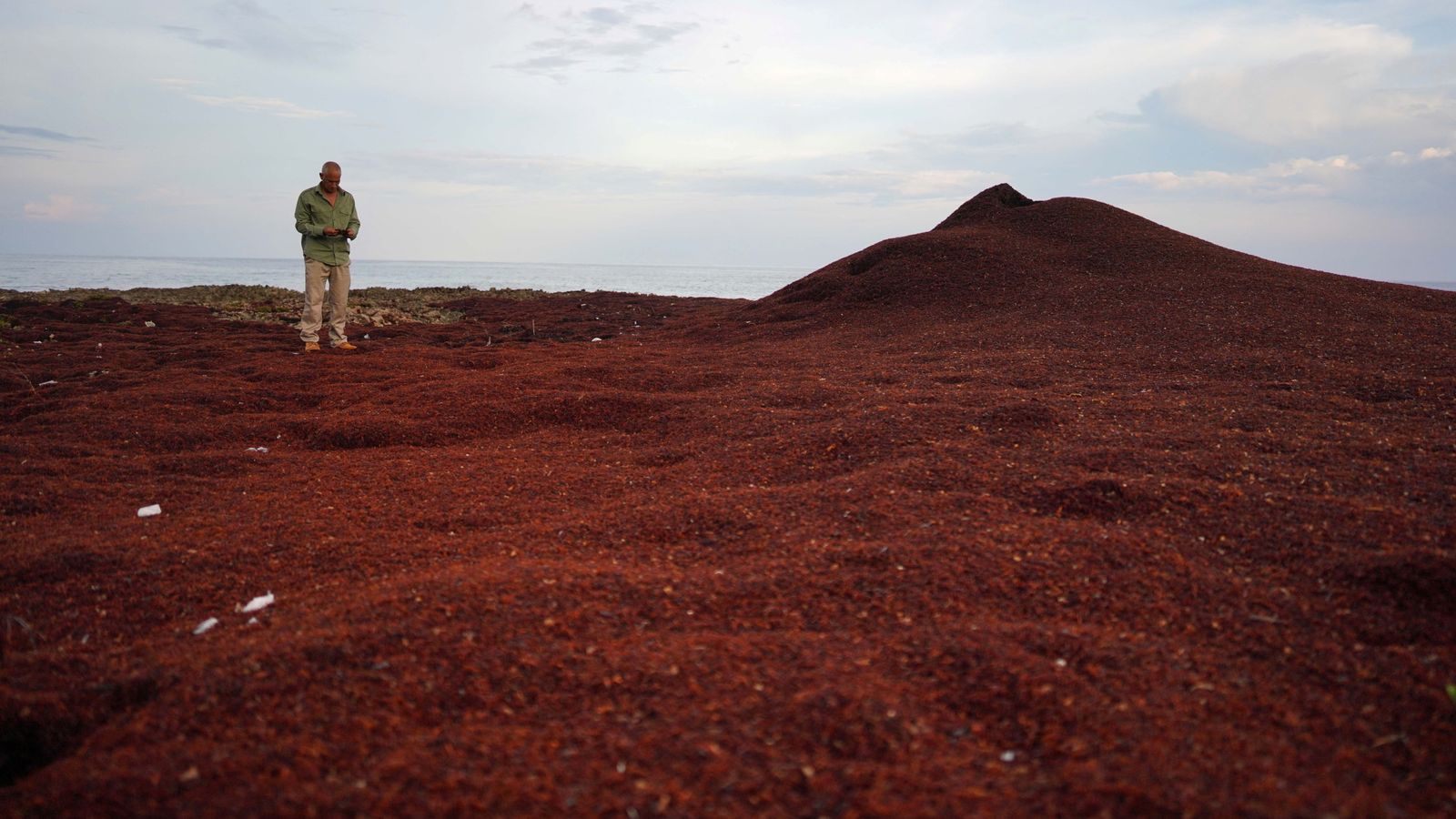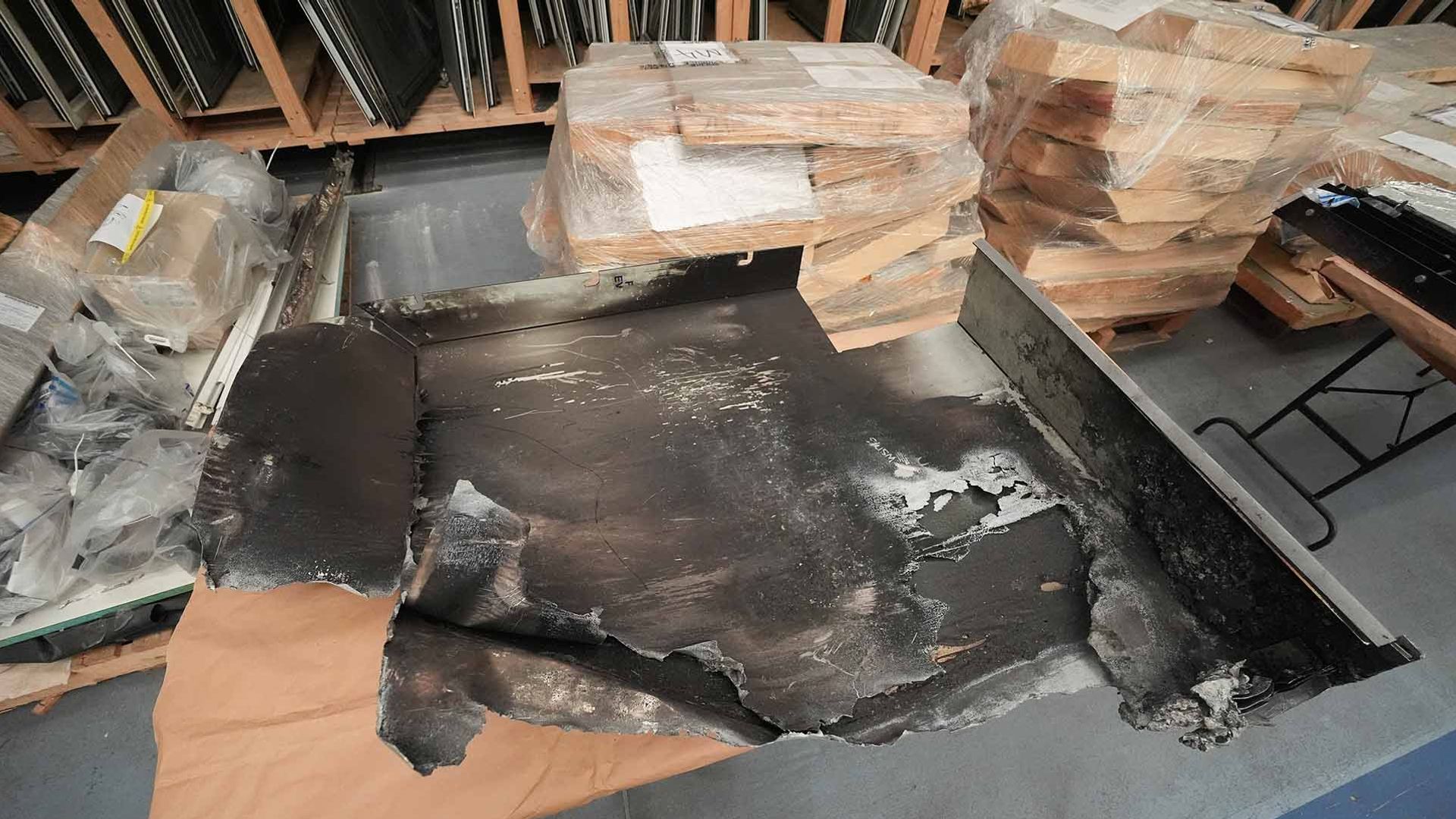A vast blanket of seaweed about 5,000 miles across is threatening beaches along the Gulf of Mexico and the Caribbean.
Visible from space, the so-called Great Atlantic Sargassum Belt is believed to have some benefits, including serving as a habitat for certain fish and crustaceans and absorbing carbon dioxide.
But ocean currents are now pushing tonnes of the seaweed on to beaches, causing big problems.
There it can choke corals, wreak havoc on coastal ecosystems and diminish water and air quality as it rots.
Brian LaPointe, a research professor at Florida Atlantic University’s Harbour Branch Oceanographic Institute, told NBC: “It’s incredible.
“What we’re seeing in the satellite imagery does not bode well for a clean beach year.”
Mr LaPointe, who has studied Sargassum for four decades, said huge piles typically come ashore in South Florida in May, but beaches in Key West are already being inundated with algae.
Man who survived on ketchup for 24 days at sea to get new boat – from Heinz
Rioting police rebels in Haiti seize Port-au-Prince streets in protest at gang killings of at least 10 officers
Castaway adrift in the Caribbean Sea for 24 days survived by eating ketchup
Parts of Mexico’s Yucatan Peninsula, including Cancun, Playa del Carmen and Tulum, are preparing for up to three feet of Sargassum to build up in the coming days.
“Even if it’s just out in coastal waters, it can block intake valves for things like power plants or desalination plants, marinas can get completely inundated and boats can’t navigate through,” Brian Barnes, an assistant research professor at the University of South Florida’s College of Marine Science said.
“It can really threaten critical infrastructure.”
Last summer, the US Virgin Islands declared a state of emergency after unusually high quantities of sargassum caused water shortages on St Croix.
Mr Barnes and his University of South Florida colleagues use NASA satellite data to map the Great Atlantic Sargassum Belt and its movements.
The bloom’s size in recent years would have been inconceivable decades ago, he said.
“Historically, as far back as we have records, Sargassum has been a part of the ecosystem, but the scale now is just so much bigger.
“What we would have thought was a major bloom five years ago is no longer even a blip.”











